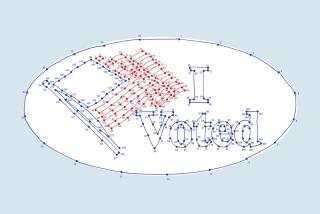Bill would return California’s 2012 presidential primary to June
- Share via
For years, Sacramento lawmakers worked to give California voters a bigger say in national politics by scheduling the state’s presidential primary as early as they could.
The series of moves culminated in 2008 with a Feb. 5 vote, the earliest in state history. But now a legislative effort is underway to move the California primary back where it started — to June, on the last day of the 2012 nominating season — as a way to save tens of millions of dollars. “That’s a lot of money,” said the bill’s sponsor, Assemblyman Paul Fong (D-Cupertino), “at a time when every penny counts.”
His measure is set for its first committee hearing next month.
If the bill is passed and signed into law by Gov. Jerry Brown, who has not taken a position, California would join other cash-strapped states that have decided to forgo the added cost — and any added attention from presidential candidates and the political press corps — by ceding their early spot on the calendar.
In Washington state, officials are talking about canceling their primary, a non-binding “beauty contest” that does not determine the awarding of delegates. “Our [budget] cuts are hurting the poor, hurting kids, really damaging education,” said Secretary of State Sam Reed. The estimated savings: $10 million.
Other states canceling their primaries, pushing back the date or weighing those options include Arkansas, Illinois, Kansas, Montana, New Jersey, Oklahoma and Virginia.
Their moves reverse a decades-old trend of states stampeding to the front of the calendar in hopes of grabbing a bit of the attention and revenue showered on the two leadoff states, Iowa and New Hampshire. For many, including California, that meant holding two primaries: an early one for president and a later one for other offices, boosting their costs.
The front-loading may have reached its climax in 2008, when more than 20 states — California and New York among them — voted on the single biggest day of primary balloting ever held.
“The whole idea of moving forward looked good,” said Josh Putnam, a political scientist at Davidson College in North Carolina who tracks 2012 scheduling on his website, Frontloading HQ. “But then everyone had the same idea, and states ended up getting lost in the shuffle.”
Hoping to introduce some order and extend the primary season, the two major parties have set rules allowing just four states to vote next February: Iowa, New Hampshire, Nevada and South Carolina. States that jump the queue would be punished by losing delegates to the party’s nominating conventions.
As it stands, Florida, which broke the rules to vote early in 2008, is again scheduled to hold a Jan. 31 primary, which would place it ahead of the four officially sanctioned states. If Florida doesn’t budge, the balloting could move earlier into January, as Iowa and the others leap ahead to preserve their status.
Even if Florida lawmakers reschedule their vote, New Hampshire may advance its proposed Feb. 14 primary to keep a seven-day window ahead of Nevada. If that happens, it would probably push Iowa to move up into January.
With the Republican field still taking shape, it is too early to predict the consequences of all the shuffling, but experience suggests that caution should be a guide.
Given the heavy front-loading, many anticipated that the 2008 nominations would be decided no later than early February. The Republican race was, in fact, over fairly swiftly. But Democrats Barack Obama and Hillary Rodham Clinton battled all the way to June in the longest, most contentious primary fight in generations.
More to Read
Sign up for Essential California
The most important California stories and recommendations in your inbox every morning.
You may occasionally receive promotional content from the Los Angeles Times.














